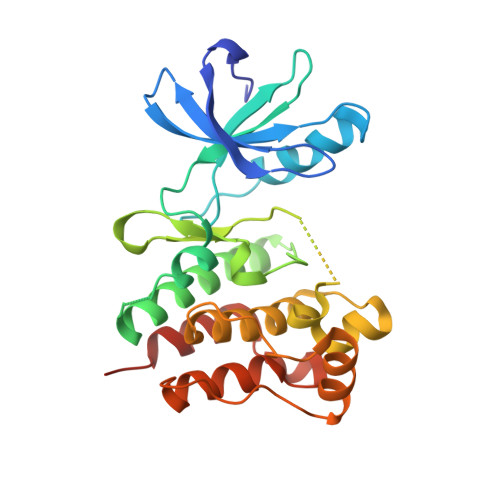Kinase Dynamics. Using Ancient Protein Kinases to Unravel a Modern Cancer Drug'S Mechanism.
Wilson, C., Agafonov, R.V., Hoemberger, M., Kutter, S., Zorba, A., Halpin, J., Buosi, V., Otten, R., Waterman, D., Theobald, D.L., Kern, D.(2015) Science 347: 882
- PubMed: 25700521
- DOI: https://doi.org/10.1126/science.aaa1823
- Primary Citation of Related Structures:
4CSV, 4UEU - PubMed Abstract:
Macromolecular function is rooted in energy landscapes, where sequence determines not a single structure but an ensemble of conformations. Hence, evolution modifies a protein's function by altering its energy landscape. Here, we recreate the evolutionary pathway between two modern human oncogenes, Src and Abl, by reconstructing their common ancestors. Our evolutionary reconstruction combined with x-ray structures of the common ancestor and pre-steady-state kinetics reveals a detailed atomistic mechanism for selectivity of the successful cancer drug Gleevec. Gleevec affinity is gained during the evolutionary trajectory toward Abl and lost toward Src, primarily by shifting an induced-fit equilibrium that is also disrupted in the clinical T315I resistance mutation. This work reveals the mechanism of Gleevec specificity while offering insights into how energy landscapes evolve.
Organizational Affiliation:
Howard Hughes Medical Institute and Department of Biochemistry, Brandeis University, Waltham, MA 02452, USA.















